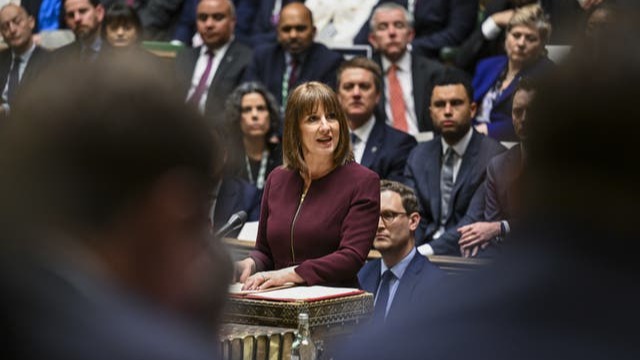Key Points
-
 Judges ruled Westminster acted lawfully when it vetoed the Scottish Government’s gender self-ID reforms
Judges ruled Westminster acted lawfully when it vetoed the Scottish Government’s gender self-ID reforms -
 Holyrood overwhelmingly passed the Gender Recognition Reforms Bill with cross-party support
Holyrood overwhelmingly passed the Gender Recognition Reforms Bill with cross-party support -
 But that was blocked by the Scottish secretary with a never-used-before Section 35 order
But that was blocked by the Scottish secretary with a never-used-before Section 35 order -
 Scotland’s First Minister Humza Yousaf launched the legal challenge which has cost the taxpayer at least £230,000
Scotland’s First Minister Humza Yousaf launched the legal challenge which has cost the taxpayer at least £230,000 -
 The Scottish Government could have taken the fight all the way to the UK Supreme Court
The Scottish Government could have taken the fight all the way to the UK Supreme Court -
 Trans rights activists describe the ruling as a ‘devastating for equality’
Trans rights activists describe the ruling as a ‘devastating for equality’ -
 The reforms were designed to streamline the process for people to obtain a gender recognition certificate – the official route to changing your legally recognised sex
The reforms were designed to streamline the process for people to obtain a gender recognition certificate – the official route to changing your legally recognised sex -
 Critics argued it could compromise the safety of single-sex spaces for females
Critics argued it could compromise the safety of single-sex spaces for females
The Scottish Government is expected to abandon its bid to overturn Westminster’s veto of gender reform laws, STV News understands.
Ministers have until December 29 to appeal the Court of Session’s ruling that the UK Government’s use of Section 35 of the Scotland Act had been lawful.
A ministerial statement on the issue is expected at Holyrood on Wednesday.
The controversial Gender Recognition Reform (Scotland) Bill was voted through by the Scottish Parliament with cross-party support in December 2022 by 86 votes to 39.
The legislation was designed to streamline the process for people to obtain a gender recognition certificate – the official route to changing your legally recognised sex.
Campaigners against the reforms believe the legislation could risk the safety of women and girls while supporters argued it would make the process easier, removing barriers such as seeking a doctor’s diagnosis of gender dysphoria.
In January, Scottish secretary Alister Jack used Section 35 powers from the Scotland Act 1998 – the legislation that established the Scottish Parliament – for the first time to stop the Bill receiving royal assent.
He argued the legislation would adversely impact the UK-wide 2010 Equalities Act, which sets out protections for groups including women and transgender people.
Humza Yousaf launched a legal challenge after he became First Minister in March, describing the UK Government’s move as an “undemocratic veto”.
However, earlier this month the Court of Session dismissed the Scottish Government’s appeal against Westminster’s decision to override MSPs and axe the Bill.
In her ruling, Lady Haldane, who presided over two days of evidence at Edinburgh’s Court of Session in September, said the Scottish Government’s challenge “fails”.
She wrote: “I will accordingly sustain the pleas in law for the respondent, repel the pleas in law for the petitioners and dismiss the petition.”
Lady Haldane’s judgment represented a win for the UK Government at a time when it has been accused by the SNP of intruding on devolved areas.
Taxpayers have already shelled out £230,000 for costs on the Scottish Government’s side of the argument.
Lord Advocate Dorothy Bain, representing Scottish ministers, argued during the hearings that Scottish Secretary Alister Jack used the landmark power because of a “policy disagreement”.
She also argued the order was “unlawful” and was “inconsistent with the constitutional principles” of the UK, effectively preventing Holyrood from passing laws the UK Government did not agree with.
Yousaf claimed devolution was “fundamentally flawed” following the Court of Session’s ruling.
But former SNP leadership candidate Kate Forbes has warned the Scottish Government not to prolong the legal battle.
Forbes has been a strong critic of the proposals in their current form and she said she would not have voted for the Bill if she had been in parliament instead of on maternity leave during the crucial vote.
Follow STV News on WhatsApp
Scan the QR code on your mobile device for all the latest news from around the country




























